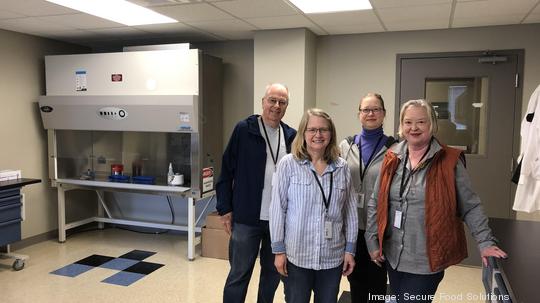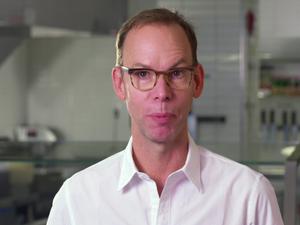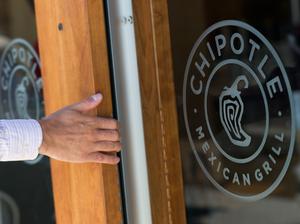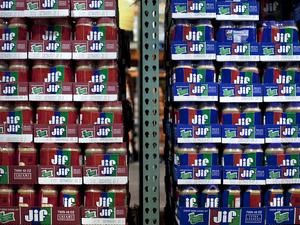
Chris Ramezanpour, president of Secure Food Solutions, said his time in the Peace Corps changed him.
"I was a Peace Corps volunteer first in West Africa and Côte d'Ivoire in 2002," he said. "I experienced a number of food-related illnesses — probably more than the average volunteer."
Ramezanpour and his team of scientists at Memphis-based startup Secure Food Solutions are developing a rapid salmonella test, which recently received a $256,000 grant from the National Science Foundation.
His memories of his time abroad are harrowing. He was infected with tuberculosis and a Christmas Eve meal left him prone on the bathroom floor for 24 hours.
"My experience in Africa was an eye-opener for food security, as well as food safety," Ramezanpour said. "I think I came back a germaphobe."
Strategic testing
Ramezanpour went on to graduate school at Harvard University's Kennedy School. When he returned to Memphis, he worked with agricultural startups and founded Secure Food Solutions in 2014.
Secure Food Solutions' first project involved a rapid imaging technology to detect a dangerous fungal carcinogen in corn. Fungal carcinogen in corn can cause stunting in children and is particularly devastating in sub-Saharan Africa. They worked with Mississippi State University on that project and also on a Vibrio test for shellfish, which led them to identify a base formulation for the salmonella test. The work also proved a starting point for testing for listeria and E. coli.
Salmonella is one of the most common sources of foodborne illness, causing over 1.3 million illnesses in the U.S. each year. The Secure Food Solutions tests have the potential to revolutionize the testing system by using a low-cost, miniaturized culturing process that dramatically reduces testing time from two to three days to 15 hours.
The Secure Food Solutions lab is in the former Memphis Bioworks Foundation building at 20 Dudley St. in the Medical District. Ramezanpour said the startup's space is about the size of a living room. It is on a high-security floor, so only Ramezanpour and the scientists are allowed in the lab. He said what you'll see once you enter is a bunch of countertops and an autoclave.
Ramezanpour noted that he's not a scientist himself. He's the numbers guy.
"I do everything to help them so that they don't get distracted with the stuff that they don't need to be worried about — the grant writing, fundraising, business development, and strategic planning," he said.
He's also working with the thousands of data points they've gathered, along with a biostatistician at the University of Memphis.
The small size of their test is key to its efficiency, Ramezanpour said. The test is about the size of a postcard with 96 wells.
"We can test for detection in 96 samples in our plate, versus having 96 traditional plates, which would be an enormous amount of counter space," he said.
There's also no pre-enrichment step, which is another timesaver.
'Compelling value proposition'
One use for the Secure Food Solutions test would be at poultry processing plants, Ramezanpour said.
"It's a giant market, and 20% of salmonella cases in the U.S. are linked to poultry," he said. "So there's a direct connection. And importantly, we believe that our salmonella test offers a compelling value proposition for them in terms of rapid on-site testing for detection and enumeration of salmonella."
The test would allow the plants to map out salmonella levels throughout the site, and there are other applications as well, including testing fruits and vegetables and cosmetics and pharmaceuticals.
Ramezanpour noted that there's a marketing aspect, too.
"If you're running a company, the other big risk is that you don't want salmonella or any other kind of contamination attached to your brand. There's too many alternatives for the customer, whether that's in poultry or in cosmetics or anything else," he said. "It's a risk mitigation strategy to have improved models for testing in your processes."
They are working on a prototype for the test now. The next step after that is developed is third-party validation. They are using standards established by AOAC International.
"Once it's validated — that's a commercial requirement for sale in the food industry — we can start selling the tests commercially," Ramezanpour said. "And, we plan to manufacture the tests here in Memphis."









